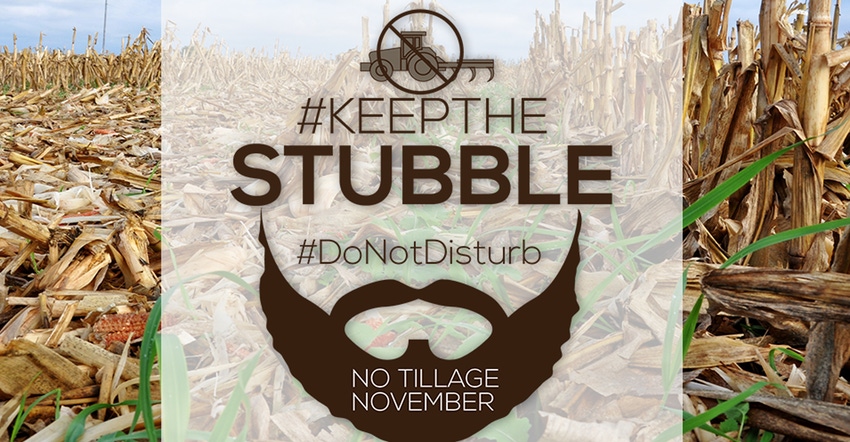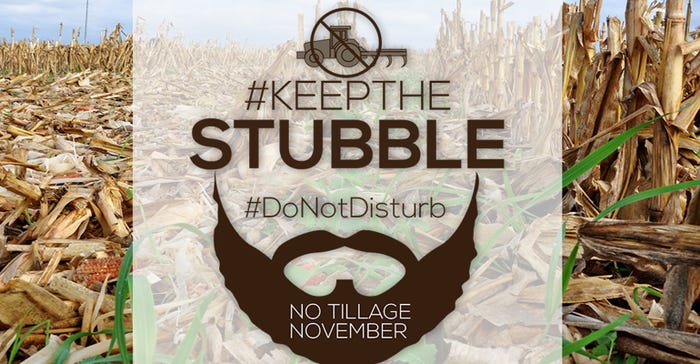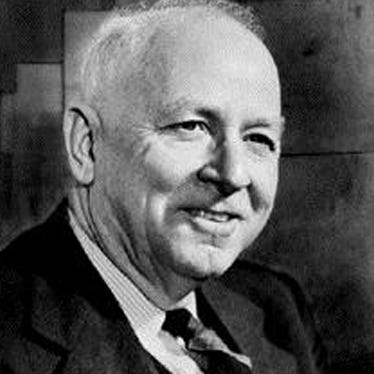
During a special month-long campaign called “No Tillage November,” the USDA Natural Resources Conservation Service is encouraging Iowa farmers to “Keep the Stubble” on their harvested crop fields to help improve soil health, water quality and wildlife habitat.
The NRCS project is mirrored after the national cancer awareness “No-Shave November” campaign that encourages people not to shave for the entire month. The NRCS campaign promotes improving soil health by not disturbing the soil this fall with tillage equipment.
Reduce soil erosion, improve soil health
“One of the primary soil health principles is, do not disturb the soil with tillage,” says Kurt Simon, state conservationist for NRCS in Iowa. “By eliminating tillage, Iowa farmers will not only improve their soil health, but also water quality while saving time and money. This campaign is a fun way to remind farmers about the important relationship between tillage and soil health.”

DO NOT DISTURB: In a special campaign, USDA NRCS is asking farmers to keep tillage equipment in the machine shed this fall to help reduce soil erosion and improve soil health.

DO NOT DISTURB: In a special campaign, USDA NRCS is asking farmers to keep tillage equipment in the machine shed this fall to help reduce soil erosion and improve soil health.
Improving soil health increases soil biological activity, which provides erosion control and nutrient benefits, and can simulate tillage.
Gene DeBruin is a no-tiller from Mahaska County in southeast Iowa. “I like knowing that there is biological activity below the ground,” he says. “You dig down 6 inches and the earthworms are there, serving as my tillage tool.”
For more information about soil health and the No Tillage November campaign, visit ia.nrcs.usda.gov.
Soil conservation pioneer Bennett featured in new documentary
In other conservation news, USDA NRCS announces the release of a documentary on soil conservation pioneer Hugh Hammond Bennett and the birth of the private lands conservation movement in the U.S. See the video here.

Hugh Hammond Bennett, first chief of the Soil Conservation Service

Bennett led the soil conservation movement in the U.S. in the 1920s and 1930s, and urged the nation to address the “national menace” of soil erosion. He created a new federal agency and served as its first chief — the Soil Conservation Service, now the USDA’s Natural Resources Conservation Service.
As noted by a contemporary, Bennett “combined science with showmanship” to convince the country that soil erosion was a serious problem meriting national attention. His efforts led to demonstration projects, and ultimately to a conservation partnership that the nation enjoys today: science-based technical assistance and support from USDA, leadership from local conservation districts, and support from state conservation agencies for natural resource conservation on private land.
About the Author(s)
You May Also Like




